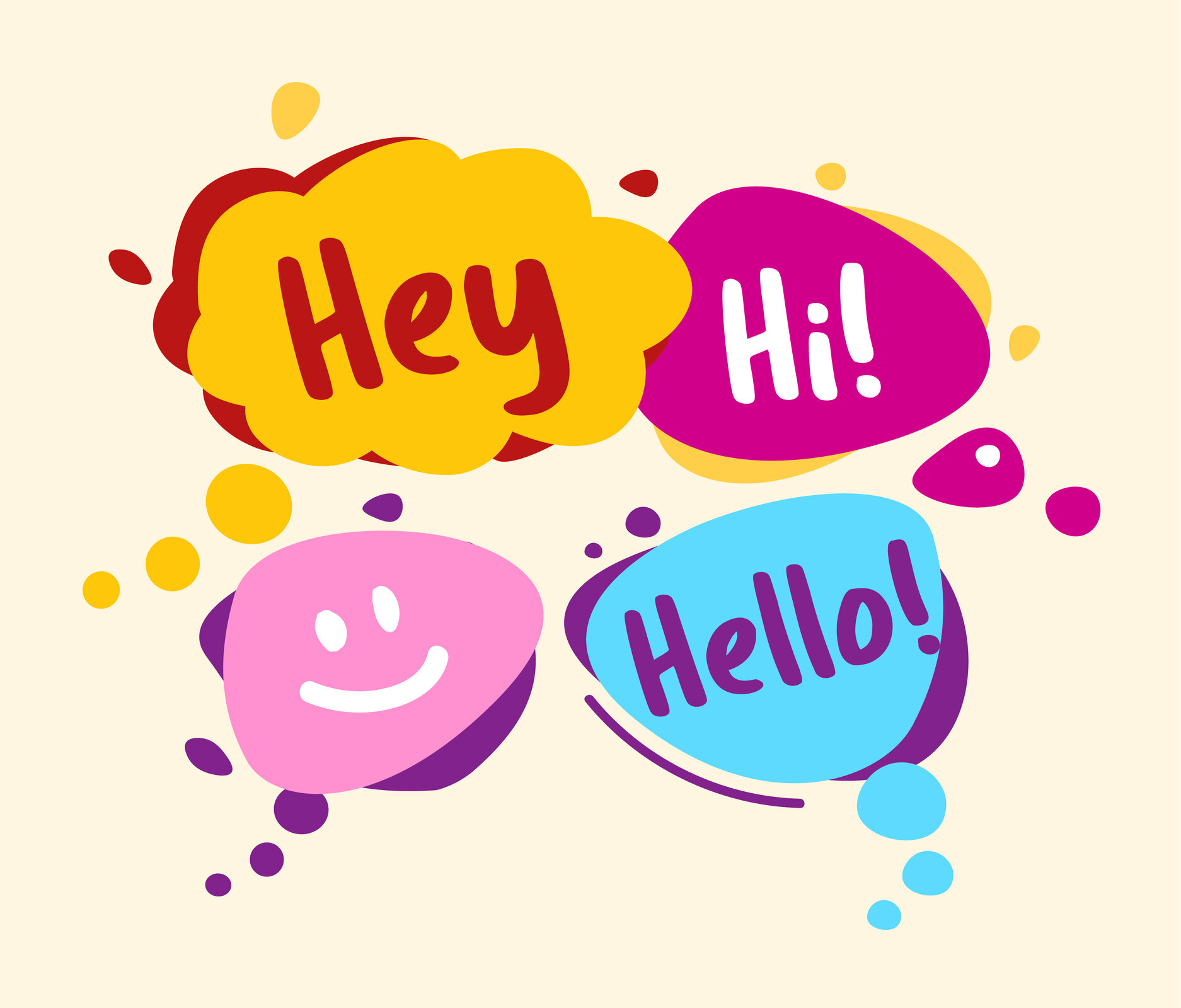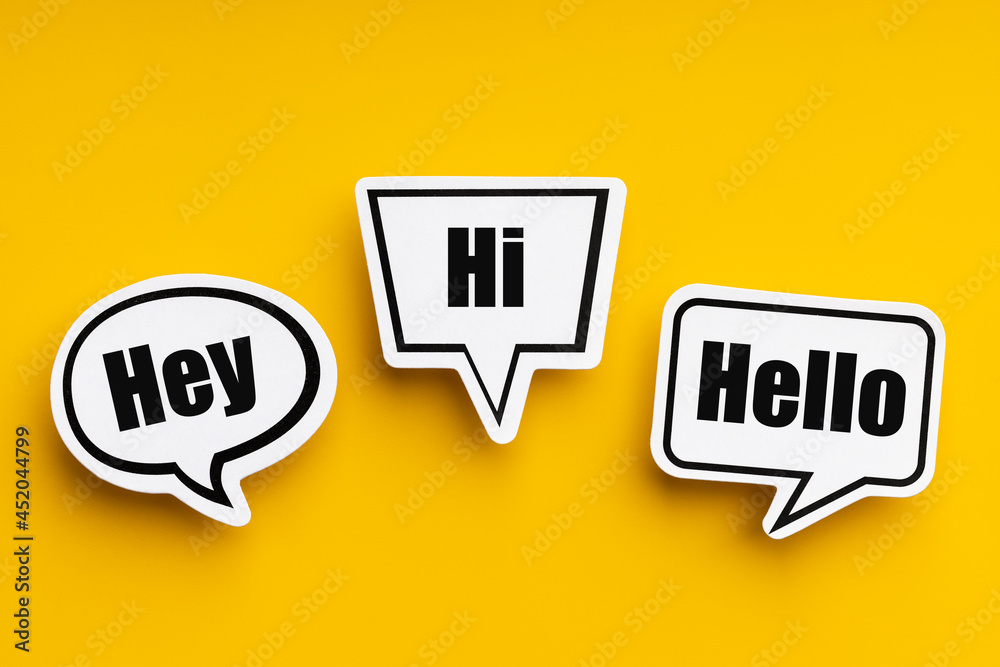OutKast’s "Hey Ya!" burst onto the music scene with a sound that just made you want to move, really. It was a tune that seemed to get everyone on their feet, no matter where they were. Yet, beneath that truly infectious beat and the seemingly carefree calls, there's a conversation happening, a sort of quiet questioning about relationships and what people often expect from them. This song, you know, has always had a way of sticking with listeners, making them think a little about the words while they're grooving along.
The words of "Hey Ya!" often feel like a friendly chat with someone trying to figure things out, almost like they're talking to themselves out loud. They touch on feelings of certainty mixed with a bit of doubt, especially when it comes to how people connect with one another. It's about that feeling where you believe someone cares for you deeply, but then a tiny voice in your head asks if their feelings are truly as simple as they appear. This kind of inner talk, so, really pulls you into the song’s world, making it more than just a catchy number.
The brilliance of this particular piece of music, as a matter of fact, comes from how it puts those complex feelings into such an easy-to-listen-to package. It talks about the ways we sometimes avoid facing uncomfortable truths in our connections, preferring instead to keep things light and fun. The song, you see, manages to be both a celebration of movement and a quiet reflection on the hidden parts of our hearts, making its message resonate in a way that feels very personal to many folks.
Table of Contents
- What's the Real Story Behind These Hey Ya Lyrics?
- Is There More to the Groove Than We Realize?
- How Do These Hey Ya Lyrics Speak to Our Own Lives?
- What Happens When We Don't Face the Truth?
- The Catchy Tune and Its Hidden Layers
- Exploring the OutKast Perspective
- The Lasting Echo of Hey Ya
- Getting to the Heart of the Song's Meaning
What's the Real Story Behind These Hey Ya Lyrics?
The opening lines of "Hey Ya!" paint a picture of a relationship that seems, on the surface, to be quite steady. The singer talks about a partner who "doesn't fool around" because "she feels a strong affection" for him, and this, he states, he knows "for sure." This expression of confidence, you know, gives a sense of security, a feeling that things are settled and clear between them. It’s a common experience, that feeling of being certain about someone's feelings for you, almost as if it’s a rock-solid fact in your life. This initial declaration sets up a situation that many people can recognize in their own connections, where there's a basic trust and a belief in the other person's good intentions. It’s a starting point that feels quite comfortable, really, almost like a warm blanket of reassurance.
The Core of the Connection
Yet, the song, quite quickly, introduces a small, yet significant, twist. Right after expressing this certainty, the singer asks, "but does she really want to?" and then adds, "but can't stand to see me walk out the door." This little shift, as a matter of fact, changes the whole mood. It introduces a subtle question, a hint of something deeper going on beneath the surface of what seems like a simple connection. This line suggests that while there might be genuine feelings, there could also be a hidden struggle, a desire that isn't quite aligned with the outward show of affection. It brings up the idea that sometimes, people might feel trapped, or perhaps they have conflicting desires that they find hard to express openly. This internal conflict, so, is a very human thing, a quiet battle between what one truly wishes for and what one feels obliged to do, or perhaps what one is afraid to lose. It’s a moment of quiet reflection, a slight pause in the upbeat rhythm, asking listeners to consider the full picture of emotional connections.
Is There More to the Groove Than We Realize?
The song then, quite pointedly, brings up a bigger question about honesty within relationships, asking, "Are we so in denial when we know we're not happy here?" This question, you know, cuts right to the core of how people often deal with discomfort in their personal connections. It talks about the way we might pretend everything is fine, even when deep down, we sense that things are not quite right. This kind of self-deception, so, is a common thread in many interactions, where it feels easier to keep up appearances than to face a difficult truth. It speaks to the effort we sometimes put into maintaining a front, both for ourselves and for others, avoiding the tougher conversations that might lead to real change. This line, in a way, serves as a mirror, inviting anyone listening to think about their own experiences with pretending, and perhaps, with avoiding what's truly going on in their hearts. It’s a powerful moment of reflection, really, tucked right into a dance track.
The Denial Within the Dance
The sentiment of avoiding difficult truths is echoed in another notable line: "Y'all don't want to hear me, you just want to dance." This statement, actually, seems to be a comment on how people often engage with creative works, particularly music. It suggests that many listeners might prefer the surface-level enjoyment, the catchy rhythm, and the ability to move their bodies, rather than digging into any deeper, perhaps more challenging, messages that the artist might be trying to share. It's a bit of a commentary on escapism, really, where the immediate pleasure of the beat outweighs any desire for introspection or a more thoughtful engagement with the words. This idea, you know, highlights a common disconnect between what a creator might intend to convey and how the audience chooses to receive it, preferring comfort and lightheartedness over anything that might require a bit more thought or emotional work. It’s almost as if the song itself is pointing out its own dual nature, being both fun and thought-provoking.
How Do These Hey Ya Lyrics Speak to Our Own Lives?
The lyrics also touch on a preference for superficial connections, a desire to keep things light and uncomplicated. Phrases like "don't want to meet your daddy, ohh oh" and "don't want to meet your mama ohh oh," followed by "just want you in my caddy ohh oh," paint a picture of someone who wants the immediate pleasure of a relationship without the deeper ties or responsibilities that often come with it. This preference, you know, for a connection that exists purely in the moment, without the need for family introductions or long-term commitments, is a feeling that many people can relate to, especially in certain stages of their lives. It speaks to a desire for freedom, perhaps, or a fear of being tied down, preferring the simple joy of companionship over the complexities of a truly intertwined life. It's a candid look, really, at the kind of quick, easy connections that sometimes happen, where the focus is on shared experiences rather than building a future together. This idea, so, is a very real part of the human experience of forming bonds.
Avoiding the Deeper Conversation
This avoidance of deeper connection, this tendency to keep things on a surface level, ties back to the broader theme of denial present throughout the song. If people are unwilling to face unhappiness in their relationships, it stands to reason that they might also shy away from the steps that would deepen those connections, like meeting family or making long-term plans. The lyrics, in a way, suggest a pattern: if you're not ready to be truly honest about how you feel inside a relationship, you're probably also not ready to truly invest in it in a meaningful way. This creates a sort of loop, you know, where the avoidance of difficult truths leads to a preference for less serious interactions, which in turn prevents the kind of growth that might require those very truths to be faced. It’s a cycle that many people find themselves in, a sort of quiet agreement to keep things light, even if it means missing out on something more profound. This perspective, actually, offers a bit of insight into why some relationships remain at a certain level, never quite moving beyond the initial spark.
What Happens When We Don't Face the Truth?
The idea of not getting something "until there's nothing at all" is a powerful, if somewhat somber, thought expressed in the lyrics. This phrase, you know, suggests that people might not truly appreciate what they have, or recognize the issues within a connection, until it's completely gone. It speaks to a common human tendency to take things for granted, to overlook subtle signs of trouble, or to simply avoid dealing with problems head-on. It implies a sense of regret that comes too late, a realization that only arrives once the opportunity for change has passed. This can be a hard lesson to learn, really, the understanding that sometimes you don't fully grasp the value of something until it's no longer within your reach. It’s a very relatable feeling, that moment of looking back and wishing you had done things differently, or had seen things more clearly when they were still there. This particular line, so, adds a layer of depth to the song, hinting at the potential consequences of denial and avoidance.
The Unspoken Fears
The repeated phrase, "but can't stand to see me walk out the door," also hints at a fear of abandonment or loss. While the singer might question the true depth of affection, there's an acknowledgment that the partner doesn't want the relationship to end. This suggests a complex emotional landscape, where feelings might not be perfectly aligned, but there's still a strong desire to maintain the connection, perhaps out of habit, comfort, or a genuine fear of being alone. It speaks to the idea that sometimes, people stay together not just because of love, but also because of a shared history, or a reluctance to face the unknown that comes with separation. This fear, you know, can be a powerful motivator, keeping people in situations that might not be ideal, simply because the alternative feels too unsettling. It’s a very human reaction, that impulse to hold onto what is familiar, even if it’s not entirely fulfilling. This subtle tension, actually, adds another layer to the story being told in the "Hey Ya!" words.
The Catchy Tune and Its Hidden Layers
The contrast between the song's incredibly upbeat and danceable sound and its more reflective, even melancholy, words is a significant part of its enduring appeal. It's a clever way, you know, of getting a deeper message across without making the listener feel weighed down. The music itself invites joy and movement, creating a sort of playful disguise for the more serious questions being asked within the words. This approach allows the song to be enjoyed on multiple levels: you can simply dance to it and feel good, or you can listen more closely and discover the nuanced observations about human relationships. It’s almost like a Trojan horse for introspection, really, delivering thoughtful ideas wrapped in a package of pure fun. This duality, so, is what makes "Hey Ya!" stand out, making it more than just a fleeting pop hit. It's a testament to the way creative works can carry layers of meaning, inviting different kinds of engagement from different listeners. This combination, as a matter of fact, is part of what gives the song its lasting power.
Exploring the OutKast Perspective
OutKast, as a group, has always been known for pushing boundaries and for their ability to blend different musical styles while also offering thoughtful commentary on life. "Hey Ya!" is a strong example of this. It takes a topic as universal as relationships and examines it from a perspective that acknowledges both the joy and the underlying struggles. The song doesn't offer easy answers; instead, it raises questions, inviting listeners to consider their own experiences. This openness, you know, this willingness to explore complexity rather than simplify it, is a hallmark of their creative approach. They manage to be both entertaining and thought-provoking, which is a rare and valuable combination in popular music. It’s almost as if they're holding up a mirror, allowing us to see a bit of ourselves in the situations they describe, even amidst the infectious rhythm. This unique blend, so, is part of why their music has such a lasting impact on so many people. They really do make you think, even when you're just enjoying the beat.
The Lasting Echo of Hey Ya
The song's continued popularity, years after its initial release, speaks to the timelessness of its core message. The questions it raises about honesty in relationships, the preference for superficiality over depth, and the tendency to avoid uncomfortable truths are feelings that people continue to grapple with across generations. The way the song balances its danceable beat with these deeper ideas means it remains relevant, always finding new ears to connect with. It’s not just a nostalgic track; it’s a piece of music that continues to resonate because the human experiences it describes are, in fact, ongoing. This enduring quality, you know, shows how a truly well-crafted piece of music can transcend its time, becoming something that people return to again and again for both enjoyment and a bit of thoughtful reflection. It’s a pretty amazing thing, really, when a song can keep speaking to people for so long. The "Hey Ya!" words, in a way, have become a part of our shared cultural conversation about love and connection.
Getting to the Heart of the Song's Meaning
Ultimately, "Hey Ya!" is a song that encourages a look beyond the obvious, to consider the nuances of human connection. It reminds us that what appears on the surface might not always tell the full story, and that genuine happiness often requires a willingness to face uncomfortable truths. The playful yet insightful approach of the lyrics, combined with the irresistible music, makes it a unique piece that continues to spark conversations and inspire movement. It's a testament, you know, to the power of creative expression to explore complex ideas in an accessible way. The song, in a way, invites us to both enjoy the moment and to think a little more deeply about the feelings that lie beneath the surface of our everyday interactions. This blend of fun and reflection, so, is what gives "Hey Ya!" its special place in music history, making it a tune that truly stands the test of time. It really does make you wonder about the connections we have, doesn't it?
Related Resources:



Detail Author:
- Name : Savanah Beer
- Username : wade44
- Email : fsteuber@brakus.com
- Birthdate : 2003-06-24
- Address : 540 Stanford Points Apt. 172 Hartmannton, AZ 76001
- Phone : 650.728.4018
- Company : Marks and Sons
- Job : Aircraft Body Repairer
- Bio : Unde itaque consequatur facilis sed non. Deserunt labore vero non quidem et ducimus. Ea est omnis debitis.
Socials
facebook:
- url : https://facebook.com/wildermanw
- username : wildermanw
- bio : Ab aut consequatur laboriosam similique deserunt.
- followers : 5326
- following : 1611
linkedin:
- url : https://linkedin.com/in/whitney_wilderman
- username : whitney_wilderman
- bio : Rem modi et eum ea.
- followers : 2226
- following : 1809
twitter:
- url : https://twitter.com/whitney_dev
- username : whitney_dev
- bio : Aliquid fugit sunt harum iure unde esse non. Esse saepe occaecati eos aliquam in eos aut numquam. Pariatur voluptates veritatis hic laudantium sed assumenda.
- followers : 6519
- following : 1773
instagram:
- url : https://instagram.com/wwilderman
- username : wwilderman
- bio : Ut id temporibus doloribus aliquam. Facilis cum quis rerum laudantium qui dolorum vel.
- followers : 2010
- following : 1618